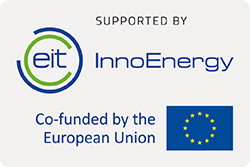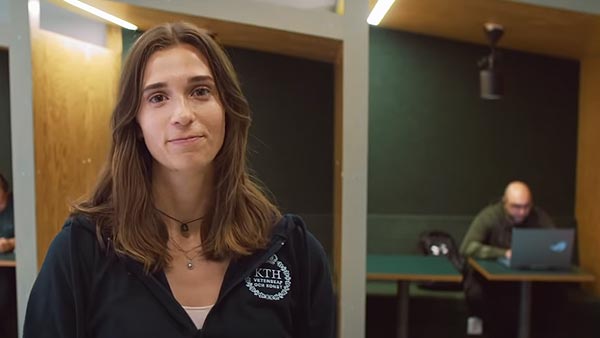MSc Environomical Pathways for Sustainable Energy Systems (EIT InnoEnergy)
The joint master's programme in Environomical Pathways for Sustainable Energy Systems equips students with skills to minimise the environmental impact of current and future energy systems. Students gain a broad knowledge of energy systems and follow a specialisation in, for example, Energy Efficiency, Solar Systems or Offshore Energy. Students also acquire skills in innovation and commerce. Eight universities offer the programme through EIT InnoEnergy.

Environomical Pathways for Sustainable Energy Systems at KTH
During your first year, you study at KTH, Universitat Politècnica de Catalunya BarcelonaTech or Eindhoven University of Technology. Courses in the first-year focus on topics such as sustainable energy conversion, renewable energy, and ways of ensuring minimal human impact on the environment. The content of the first-year courses is provided by all three universities. So, students will follow some courses locally and some courses shared with students of the other two institutions.
The Master's in Sustainable Energy Systems offers the wider range of year 2 universities to choose from amongst all EIT InnoEnergy programmes. You can select one of the following specialist tracks to deepen your knowledge.
Combined Energy Systems at KTH
Combined Energy Systems deals with multiple energy services from combinations of renewable energy sources. You will focus on the “art” of combining multiple energy sources to produce various energy services in an efficient, cost effective and sustainable way. In particular the course explores the topic of polygeneration and the synthesis of complex renewable energy systems.
Energy Efficiency at Politecnico di Torino
Deepen your understanding of new energy pathways in future complex-integrated systems, with a focus on efficiency in the industrial and residential contexts while being based at the heart of Italian architecture and cuisine in the region of Piedmont.
Innovation in Energy Systems at Eindhoven University of Technology
Explore innovation in electrical power supply systems at one of the Netherlands' best technical universities. From smart grids to energy storage, from built environmental design to socio-economic implications for developing countries, this course digs deep into supply and demand in the context of real-life case studies.
Offshore Energy Systems at Instituto Superior Técnico
Explore the innovation, the economic, the legal and the ecological dynamics at work within the implementation of energy technologies. Build strong scientific and technological problem-solving skills while developing your creativity, entrepreneurial and leadership competencies.
Solar Systems at Universitat Politècnica de Catalunya BarcelonaTech
Acquire expertise in the field of solar systems at one of Europe's solar powerhouses, Barcelona. This course draws on solid scientific knowledge, while delivering a broad perspective on technological development in innovation and sustainability. You also have the flexibility to explore a range of additional topics and areas that align with your interests and learning objectives.
Sustainable Biomass Processing at Aalto University
Acquire specialised knowledge and expertise in the areas of sustainable energy production, conversion systems and markets. You will study topics like biofuels, molecular thermodynamics, emissions control and electrochemical conversion sourrounded by a multidisciplinary community of science, business and arts students in the Helsinki metropolitan area, Finland
Renewable Energy and Energy Management at AGH: University of Science and Technology
You will acquire knowledge related to renewable energy technologies as well as economics, energy policy and energy management in the fuel and energy sector. Students will learn how to make a real contribution to foster the deployment of renewable energy technologies and how to plan the development and operation of energy systems under high RES penetration.
Master’s degree project
During the final semester of your second year, you will work on your master’s degree project, which is worth 30 ECTS credits. If you do your master’s degree project at TU/e, your thesis will be worth 45 ECTS credits. The thesis is undertaken in collaboration with our industry, research or NGO partners. It should include both the technological aspects of your chosen topic as well as a solid business analysis.
Students
Find out what students from the programme think about their time at KTH.

Career
The master's programme in Sustainable Energy Systems programme is the ideal preparation for a career in various areas of the sustainable energy industry, and equips you with skills, knowledge and attributes that are much in demand in the energy industry.







